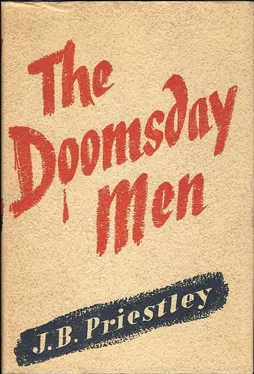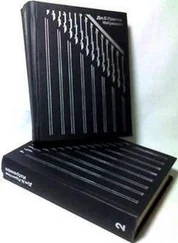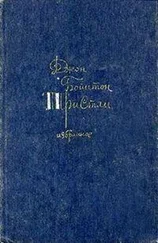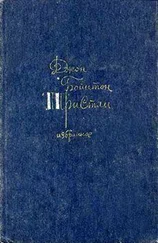Malcolm admitted she was, and said to himself, “Yes, the finest gal you’ve ever seen, you old chump.”
Then it came, a gift from the gods. Old Bellowby-Sayers chuckled. “Bet you don’t know who she is!”
This time Malcolm did not talk to himself. “No,” he replied eagerly. “Nobody seemed to know. I was wondering if you did. You meet a lot of people.”
“Yes, I get about a bit. Matter of fact, I recognised her at Cannes. She was staying there. She’s the only daughter of a fella who played merry hell in Wall Street a few years ago, and then cleared out, with a colossal pile. One of these American metal men-copper, silver, all that. The real thing-multi-millionaire-but a queer, miserable sort of fella, I thought-probably no digestion left, like most of these fellas. Met him several times, and the gal with him once. Yes, she’s his only daughter-and coming in for a packet, believe me. Fancy he’s made one of his quick trips over here-though he’s out of the market now-and she came with him and rushed down for a bit of tennis. Heard she played a good game. Fine-looking gal, but not very lively-not like some of these American gals you see about-gay little devils!”
While he was rambling on, Malcolm was telling himself that he was in love with the daughter, the only daughter, of some fantastic American multimillionaire, probably a dyspeptic old tyrant. But did that explain the girl’s queer moods, the inexplicable things she said, that strange last minute with her? Just too much money? Dollar princess nonsense? No, it didn’t. She wasn’t that kind of a girl. There was something more, he felt sure, something that no Bellowby-Sayers would be able to account for, something that was going to haunt and tantalise him endlessly until he saw her again. And for all her good-byes-for-ever, her millions and Californias, he was going to see her again, somehow or other. Now he heard himself, above the beating of his heart, asking her name.
“Probably means nothing to you, my boy,” replied Bellowby-Sayers, “and it’s dropped out a bit over there. But one time in Wall Street it frightened the lives out of some of ’em. Henry MacMichael. He’s retired to California now, I believe; probably one of these ranch places up in the hills back of Los Angeles.”
So there she was then, living in the hills somewhere in Southern California when she was at home, his girl if he was ever to have a girl: Andrea, daughter of Henry MacMichael.
CHAPTER TWO
The adventure of the missing professor
In an unfashionable and not very comfortable hotel within sight of the British Museum a tall young American sat in a little chair, now perilously tilted back, with his stockinged feet on the bed, eating an apple and staring gloomily at the steamy window. It was the middle of summer, but here in London the summer did not seem to know when to begin. This morning it had rained again; though the sun was somewhere about, so that the streets appeared to be smoking and the window was steamy. The young American was deciding that a good baking hot day would do him good. His name was George Glenway Hooker; he had long large bones with very little flesh on them, deep-set eyes and delicate finger-tips, untidy dark hair, an awkward manner, and clothes that appeared to have been made for somebody else; he had three different scientific degrees and a gold medal; already he had been a demonstrator, a research student, an assistant professor, a full professor, and now he had a research fellowship from the Weinberger Institute of Tech-nology; but what he really was-although he would have been the first to deny it-was a magician. It is doubtful if anybody in Bloomsbury would have given the tall young man more than one quick glance, for within the shadow of the great Museum there are always dozens of young men who look very untidy, rather learned, dullish; yet the fact remains that this George Glenway Hooker was the only genuine magician in the neighbourhood. And he was not only a magician; he was also an explorer, moving slowly forward in regions where he left the rest of mankind, with its pitiful fusses and squabbles, far behind. Most of them neither knew nor cared what he and his handful of colleagues, scattered over the world, were doing. Now and again when he made an attempt to tell a few of them, they almost yawned in his face. They did not realise-and he never told them, because he did not realise it himself-that they were staring, with a glazed bored eye, at a magician, a fantastic explorer, one of the greatest of the American pioneers, working along the very frontier of life itself.
What George Glenway Hooker could do, and had done several times already, was to transform what we call matter, but which he knew as the tiniest charges of positive electricity, into light, and also to conjure light itself, in the form of photons, back again into the bases of matter. He spent his working hours in a magical world of infinitely minute solar systems, where the very elements themselves can be instantly transmuted. He and his friends had forced their way into the secret laboratory of Nature herself. It was quite possible, that is, if the next barbaric outburst did not blow them and their workshops to smithereens, that one of them might emerge, with a handful of mathematical and chemical symbols, to announce that the universe that houses us is quite different from what we have so far imagined, and might prove what many have guessed at, namely, that Newton, with his solid engine of a cosmos, was wrong, and that Shakespeare, with his dissolving towers and palaces and universal stuff of dream, was strangely right. There was, indeed, nothing too fantastic that they might not announce at any moment, they were so far removed, in their adventure of research, from the common run of men. Yet all this did not prevent George Glenway Hooker from being an awkward young man with a shy manner, disgraceful trousers, and an ability, almost amounting to genius, for landing himself in uncomfortable hotels.
He had come to England this summer not simply because he was temporarily free to travel, for he did not enjoy travelling, being a poor hand at it, and regarding it as a waste of precious time. He had two reasons for crossing the Atlantic, and the second of them he hardly acknowledged even to himself. The first was far more sensible: he wanted to visit that Mecca of good physicists, the Cavendish Laboratory at Cambridge, and indeed had just returned from a happy visit there. It had been during the vacation, what these cool drawling Cambridge men, with their elaborately off-hand manner, called “the Long,” but several good fellows had been still at work, at some very pretty little experiments too, and once he had accepted their odd manner, which had seemed conceited at first until he had realised that it was their English equivalent of his own gruff shyness, he had had a fine time with them. Now that was over, and he ought to be thinking about getting back to New York. This brought him, reluctantly, face-to-face with his second reason for coming over here.
It sounded foolish, just to say it, but there it was: a distinguished American physicist had disappeared, vanished as completely as if every electron in his being had suddenly been charged with positive instead of negative electricity. He had not disappeared dramatically, with the police and the newspapers looking for him: that would have been much easier. No, Professor Paul Engelfield had coolly and quietly resigned from his last chair, at Chicago, had given out that he preferred independent research, which was not surprising for he was known to have plenty of money at his disposal; and then he had completely vanished. Nobody Hooker had talked to, and he had made a special journey to Chicago, only this Spring, to enquire, knew where Professor Engelfield had gone. For nearly two years now, Hooker had been waiting for some dramatic announcement-for the missing scientist was not without a touch of the histrionic-from Professor Engelfield about his favourite heavy nuclei , which he had been persistently bombarding with both electrons and photons, in his own type of cyclotron. But not a word. This might mean that he had failed and was sulking in some obscure laboratory of his own. (And Hooker could imagine him sulking.) It might mean that he was on the edge of something tremendous, and refused to say anything, even to admit he was experimenting, until he was certain of success. It was just possible that he was ill somewhere, but it was not likely, for Hooker, who had met him once or twice at conferences, remembered him as a strong-looking man only in his early fifties, filled with energy, not at all the kind of man to be feebly decaying in some unknown nursing-home. And if anything had happened to him, there would have been something in the Press, for Engelfield was a very distinguished scientist indeed, a man who might have walked off with a Nobel Prize at any moment. Other physicists were puzzled by his disappearance, but not one of them had been fool enough to go looking for him. And now Hooker was compelled to admit to himself that he had been fool enough, had not only enquired extensively throughout the States but had also come over here to England in the hope that he might discover that Engelfield, now free to roam and with ample means from some private source, had decided to continue his experiments in Europe, probably in Cambridge. But he had not come upon a single trace of him. At the Cavendish, of course, they had heard of Engelfield, but, ironically enough, had asked Hooker what Engelfield was doing now. And that was precisely what was worrying George Glenway Hooker. What was Engelfield doing now?
Читать дальше









